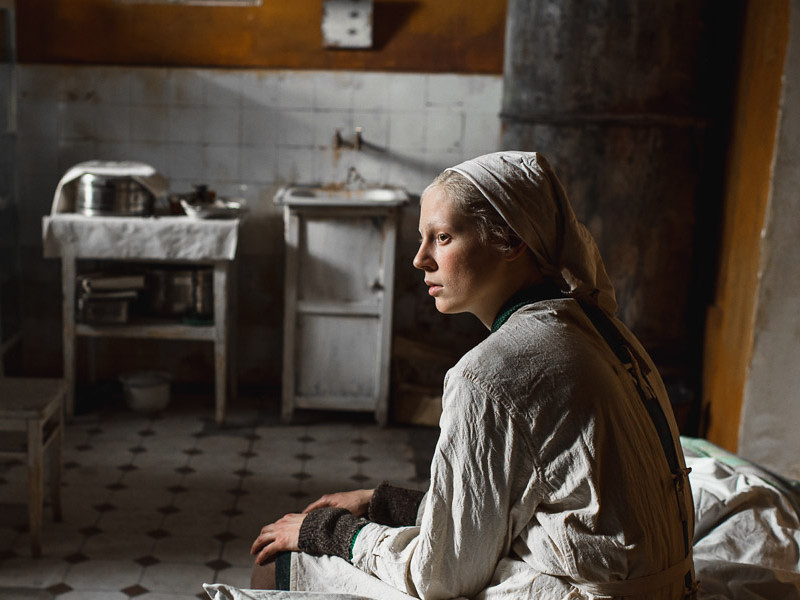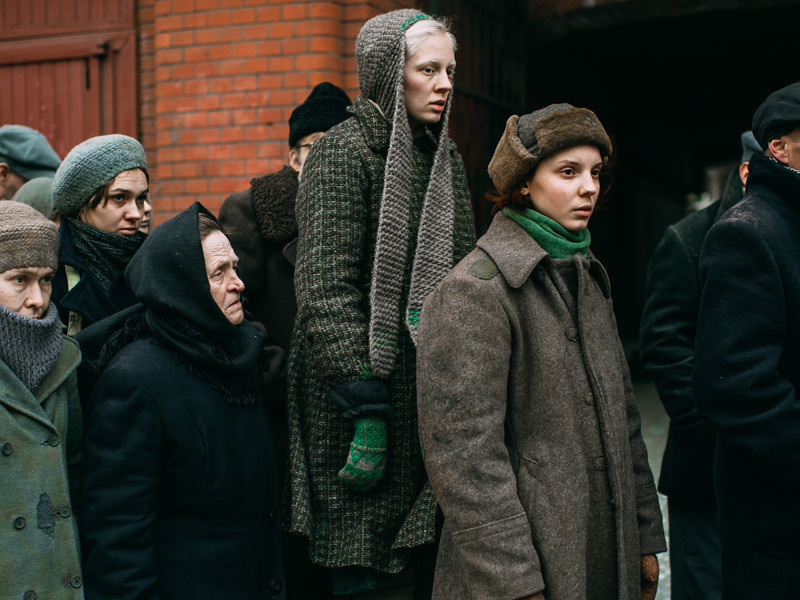|
By Benjamin Akpan Stories of war are ripe with accounts of courageous men – bloodied and pain ridden – weathering through the bombs, guns, and cannons of battle, emerging victorious with songs of triumph welcoming them back to their families that have been consumed by the grief of war’s uncertainties. We love these tales of conquest that permeate official narratives and cultural conversations, seemingly forgetting that women also went to war too. And so, Russian writer Svetlana Alexievich took it upon herself to collate rich, oral accounts of Russian women who fought in the Second World War in her book The Unwomanly Face of War. Completely void of the romanticism sustained by the male gaze, Alexievich’s book did not go unnoticed; her body of work compiling harrowing accounts from women struggling to survive during the war and rebuild their lives afterwards earned her the Nobel Prize in Literature in 2015. Her book also loosely forms the basis for Kantemir Balagov’s historical epic Beanpole. It doesn’t take too long into the movie for you to realize how commanding Balagov is, which is surprising, quite frankly, given that he is merely 28-years-old. Balagov superbly portrays the devastation of the war without presenting before us destroyed cities or a state in crisis. With characters so flawed and exposed, bearing burdens of the war that produce physical and mental consequences, he manages to make us feel the weight of the war in every second of the film. © Youtube | TIFF Delicate sound editing introduces us to Iya (Viktoriya Miroshnichenko), a former female soldier in the middle of a post-concussion episode. Iya is frozen stiff, eyes wide open, with a soft, shaky croak emanating from under her breath. Iya’s condition – as well as the conditions of the patients in the hospital she works at – is as a result of trauma from the war, and Balagov presents these moments of intense sadness with objectivity and normalcy. A deep silence occupies the film – there’s no dramatic score to prod the audience in a certain emotional direction, leaving nothing but the showcase of reality, which provides the movie a sense of authenticity that never wavers. Following a sickening tragedy involving Iya, we are then introduced to yet another flawed woman; Masha (Vasilisa Perelygina), Iya’s best friend who returns from the army. She’s a completely different woman from Iya – while Iya is reserved and practically voiceless, Masha is loud and unabashed. From the moment she arrives, she brings with her a certain density, where every glance and breath is a bomb of emotions. Beanpole steadily trails these two women as they desperately seek to find something – anything – that makes them feel alive in post-war Leningrad. Barely having any scenes apart, Miroshnichenko and Perelygina share a taut chemistry that is dynamic, constantly yielding to the needs of either character. In ways that feel almost theatrical, Beanpole is masterfully detailed. The cinematography and production design help project the cruelty and despair of the world around these characters. The mastery of colours is fascinating; Beanpole is drenched in a two-tone palette that effortlessly combines red and green, be it two complementing dresses of these colors, a child in a red sweater and his mother in green, or a green lamp fastened to a red wall, all tied together with a soft yellow tint that gives the film a distinct visual quality. But Balagov’s use of these colours isn’t baseless – it reflects the juxtaposition of the death of war, and the hope and birth that this new found period of peace is set to bring. Throughout the film, Masha continually expresses her urgent desire to bear a child; or, more accurately, to have Iya bear a child for her, as a procedure rendered her no longer capable to do so herself. And just like everything else in the world of Beanpole, Masha’s desire is more symbolic than literal – she hopes for a child to serve as a form of healing, and a symbol of renewal – an iota of green amidst all the red. It is a testament to Bagalov’s skill that he manages to capture the suffering of his actors in a way that feels more like watching real life unfold before you. Patient close-ups encapsulate the pain and misery felt by each of these broken characters as they strive to eke out a life free from the traumas of the war. One of the patients in the hospital even begs for release from his agony in a scene that is acutely upsetting, yet shot with small doses of humaneness. It is in these moments that Beanpole excels the most; its glacial pacing interposed with fraught instances that make it hard to breathe. Bagalov’s slowness is deliberate, causing us to suffer just as much as his characters do. Just as free from the romanticism of the male gaze as Alexievich’s book, Kantemir Balagov gives us a deeply honest portrait of broken souls and their repressed emotions. There’s nary a moment of catharsis amidst all its tension – not for its characters or the audience watching them. It’s an unflinching account of resilience in the face of anguish and despondency, one that runs a little too long and saves much of its emotional bearing until its latter half. But it is evidence of Balagov’s adroit visual sense that we hope to see more of in the coming future. *Editor’s Note: Beanpole screened at the Toronto International Film Festival ’19 as part of Contemporary World Cinema. |
Recent Posts
Categories
All
Archives
February 2022
|
|
GET THE APP!
Listen to VIBE 105 anywhere you go!
|
OUR STATION
|
TUNE IN RADIO
|
STAY CONNECTED
|
Copyright © 2021 Canadian Centre for Civic Media and Arts Development Inc. Except where otherwise noted, presentation of content on this site is protected by copyright law and redistribution without consent or written permission of the sponsor is strictly prohibited.





 RSS Feed
RSS Feed


